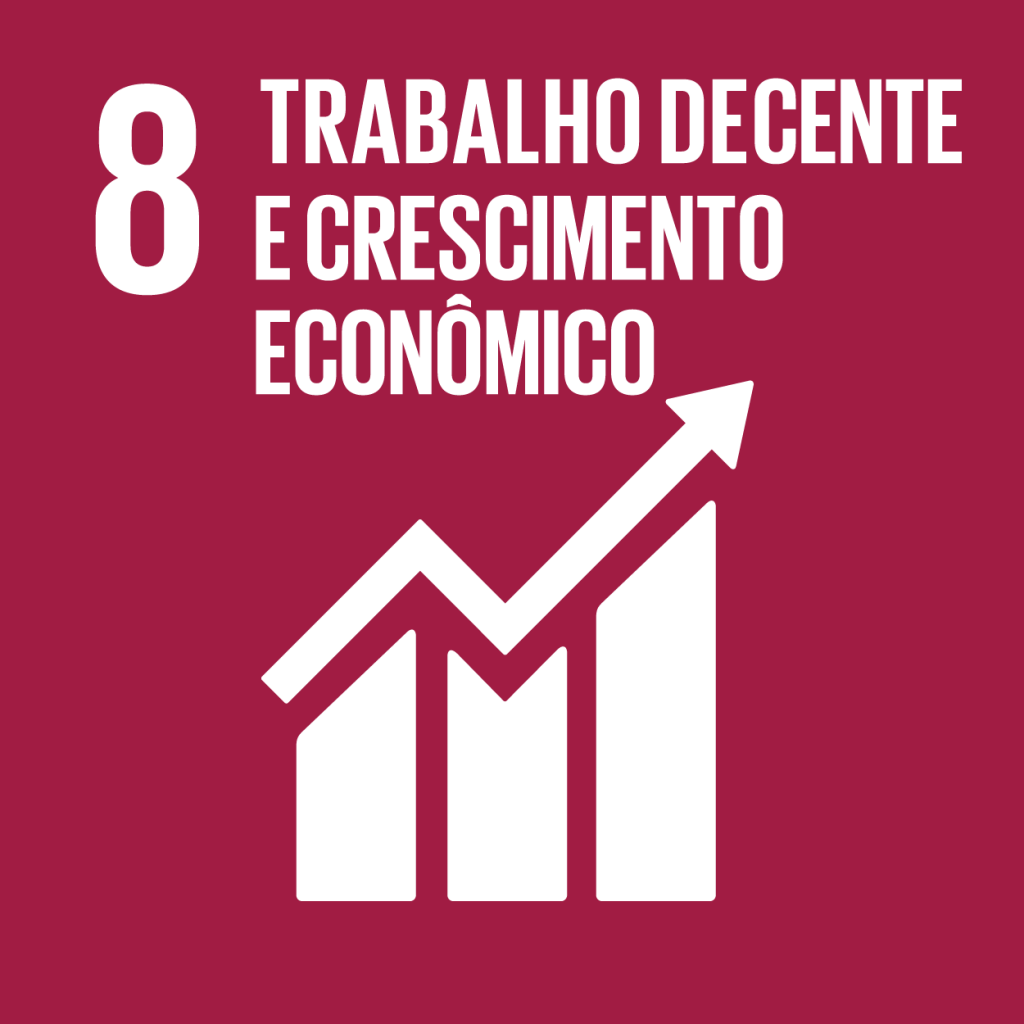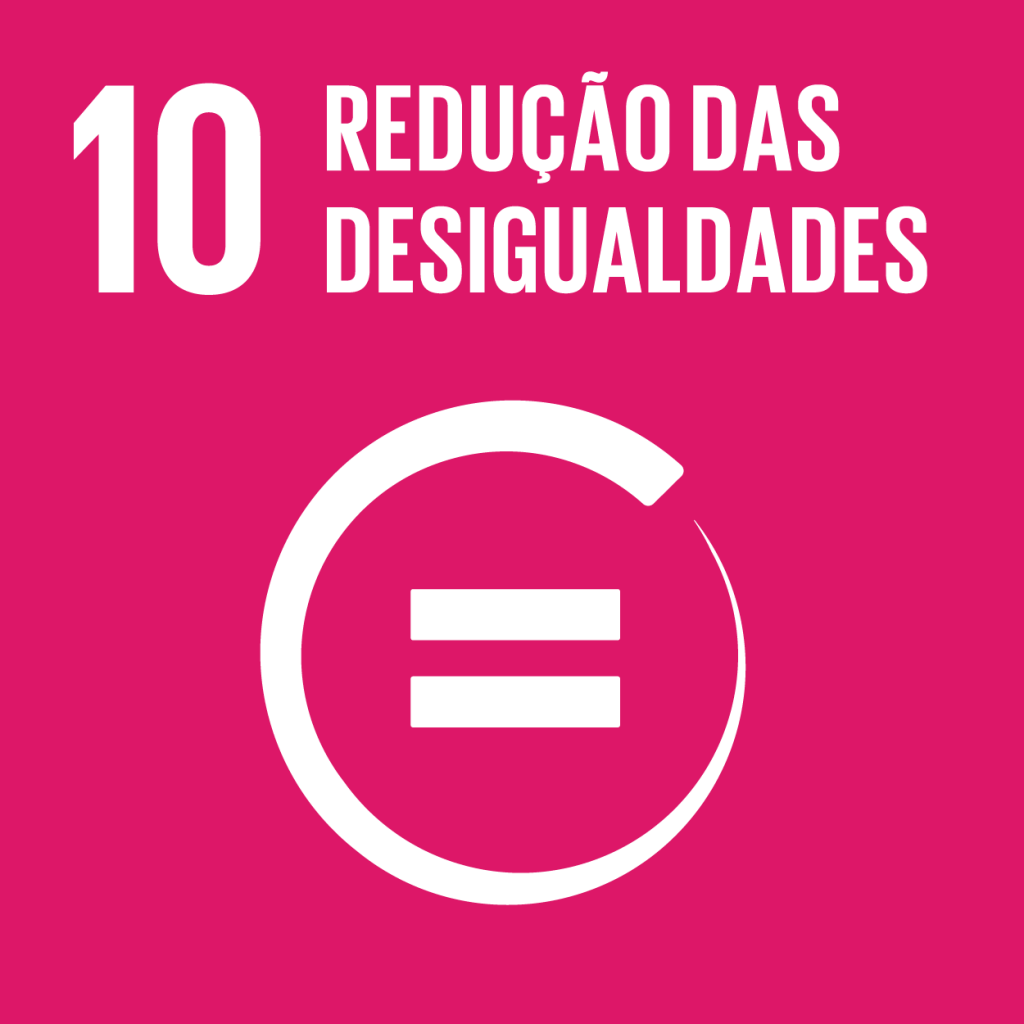In September 2015, the 193 United Nations member countries adopted a new global policy: the 2030 Agenda for Sustainable Development, which aims to elevate the world’s development and improve the quality of life for all people. The motto is to leave no one behind.
To this end, 17 Sustainable Development Goals (SDGs) were listed with 169 goals – to be achieved through a joint action that brings together different levels of government, organizations, companies and society as a whole at the international, national and local levels.
This agenda is based on five areas of importance, the so-called 5 Ps:

PEOPLE: Eradicate poverty and hunger in every way and guarantee dignity and equality.
PROSPERITY: Guarantee prosperous and full lives in harmony with nature.
PEACE: Promote peaceful, just and inclusive societies.
PARTNERSHIPS: Implement the agenda through a solid global partnership.
PLANET: Protect our planet’s natural resources and climate for future generations.
Each of the 17 SDGs represents a challenge to be met to promote more sustainable, fair and inclusive development. Despite being a global agenda, they deal with issues that are crucial for municipalities, constituting a tool that has already begun to be implemented by municipal, state and national governments, various organizations, universities, companies, banks, among others.
Get to know all the SDGs by clicking here.
The SDG proposal is not to “reinvent the wheel”. It is to use them to facilitate the development of integrated actions, with a positive future vision common to different groups, that will generate real impacts on the construction of sustainable development.
Municipalities play a central role in the success of this agenda, because for the SDGs to be disseminated and achieved, municipal managers need to include such objectives in their policies and projects, promote the integration and sustainability of initiatives, and act from agreements and coordination with other territorial agents. Civil society and the private sector are also key actors and should be involved in this process.
The Purunan Institute SDGs
Here at the Purunã Institute, we seek to base our actions in line with the goals set by the SDGs. How we act in favor of the development of São Luiz do Purunã based on actions aimed at sustainable tourism, education, work and economic growth, are the north that determine the approaches and initiatives that integrate our daily lives.
Now, let’s tell you a little bit more about each of the SDGs that are crucial to our performance. Check it out and engage in the actions together with us!
Goal 4: Quality Education

promote lifelong learning opportunities for all.
This objective focuses on inclusive and equitable education for the entire population. This concerns the provision of early childhood education in kindergartens and preschools, and free quality primary education for all boys and girls. As well as substantially increasing the number of youth and adults who have relevant skills, including technical and professional skills, for employment, decent work and entrepreneurship.
At Purunã Institute, we work towards this goal because we believe there is a need to achieve inclusive and quality education for all, reaffirming the belief that education is one of the most powerful tools for sustainable development.
That is why, we work to ensure that all children and adolescents in São Luiz do Purunã can complete free primary and secondary education and become protagonists of their own stories.
Goal 8: Decent Employment and Economic Growth

Promote inclusive and sustainable economic growth, full and
productive employment and decent work for all.
The objective here is about economic growth, of work and employment. It concerns sustainable production and consumption and brings preoccupation about decent work, youth unemployment. In addition, it proposes encouraging sustainable tourism, which generates jobs and promotes culture, and respect for labor rights, including migrant rights.
And these premises are all about the motivations that underlie the actions of the Purunã Institute. We want to offer the population of São Luiz do Purunã means and alternatives to strengthen their local activities and stimulate the development of sustainable tourism, so that we can increasingly promote the region’s growth through job creation and incentive to sustainable practices of local tourism.
Goal 10: Reduce Inequalities

It addresses issues related to inequalities, with the aim of reducing the gap that separates the richest from the poorest. Inequalities occur from a variety of angles: income difference, wealth and housing; access to basic services such as health and education; access to infrastructure, justice, work, sport and leisure opportunities and opportunities to participate in decisions that affect everyone. It also manifests itself through discrimination in its different forms. An easily observed fact that proves this stark inequality is the proportion of seats of parliamentarians occupied by each gender in our country, in all spheres, which is connected to the theme of the SDG 5.
In São Luiz do Purunã, the Purunã Institute works for the benefit and support of local entrepreneurs, encouraging them to increasingly seek ways and resources that strengthen their business. We work by supporting the process of regularization of local procedures and artisans, for the promotion of income to the community.
Goal 11: Sustainable Cities and Communities

The quality of life of the inhabitants of a municipality can be influenced by the quality of municipal planning. This objective addresses not only urban development, but also other settlements in rural areas.
Brazil has one of the most advanced urban planning laws in Latin America, which recognizes the right to the city and housing in its Federal Constitution, according to the City Statute. It has instituted a series of tools for municipalities to integrate these instruments into their urban planning and management strategies. In addition, the law disseminated the need to develop master plans with inclusive community participation in the city planning and management process and the establishment of local city councils.
Among the social functions of the city is to provide people with decent housing, work, health services, education, culture, leisure, transportation, etc. City spaces should be divided between the private and public sectors, in order to balance interests by preventing real estate speculation from driving out the most vulnerable groups, distancing them from their jobs and the necessary basic services (health, education, security, assistance, etc.).
Because we believe and are aligned with these ideas, we work with Public Management to think and execute strategies that value the population and their rights, as a way to generate more opportunities and quality of life for the community of Balsa Nova and São Luiz do Purunã.
Goal 15: Life on Earth

sustainably manage forests, combat desertification, halt and reverse
land degradation and halt biodiversity loss.
This SDG addresses the preservation of existing terrestrial ecosystems, forests and biodiversity and the reversal of damage already done. Stopping deforestation is important to avoid desertification processes.
Brazil is home to approximately 20% of the world’s biodiversity. This natural capital and related ecosystem services, such as water supply, crop pollination or protection against extreme weather events, are of great importance not only to Brazilian society and economy, but also to the ecological balance and the well-being of societies at the global level.
In São Luiz do Purunã we operate for the conservation and enhancement, mainly, of the Araucária Forest. Since 1890 the extraction of Araucárias and the devastation of the Mixed Ombrophilous Forest in Paraná has been intensifying, and as a result, today only 1% of the original portion of this ecosystem remains.That is why, today, we seek to base our actions always with respect and in line with the needs of local nature.
Want to know more about the Araucária Forest? Access the article we produced on the theme: The beauties and riches of the Araucária Forest.
Goal 17: Partnerships and means of implementation

Strengthen the means of implementation and revitalize the global
partnership for sustainable development.
SDG 17 addresses the mechanisms needed to implement the 2030 Agenda: financial resources, human resources, information and technology resources. In this case, management tools are the prime examples.
We must have the means to implement the actions and strengthen partnerships at the local level. Governance structures (which secretariats to implement, which coordination with which roles and functions, and how they relate) are another important mechanism for strengthening the implementation of all public policies. It is also important to establish leadership and communication mechanisms between hierarchical levels and between thematic areas.
At Purunã Institute, we articulate actors who work in Balsa Nova as organizations and movements of civil society, community and public power, in the pursuit of local and sustainable development.
Sustainable development of São Luiz do Purunã
In addition to the SDG already listed, the Purunã Institute also occasionally embraces other goals that go beyond them. As, for example, the Goal 9 (Industry, innovation and infrastructure), due to the Purunã Routes Project.
We understand that the pursuit of sustainable development is a field of infinite possibilities and to make our work in partnership with the community of São Luiz do Purunã even more effective, we are always willing to work on ideas and possibilities that bring us closer to achieving our goals.

